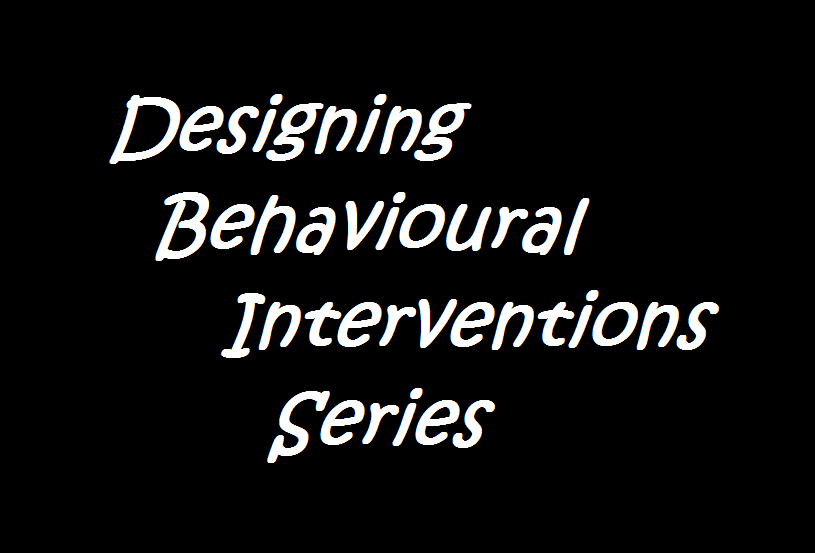Not happy with how your organisation is running? Fed up with your team culture? Well stop complaining and start acting!
Of course you are not a behavioural expert and hence you need to do your best to maximise the one chance you get at it! So where can you start?
Well, why not yourself?
In the previous article of the series I told you how it is important to understand how a behaviour works before aiming to change it. The reason in this one I am asking to start from you is because: we learn best from things we can relate most to.
Before approaching ‘change’, we need to experiment with our own behaviours, while carefully observing our own struggles, our highs and lows while going through these struggles, our hide outs and triggers that work best on ourselves.
Here are some tips to get you all “Machined up” in some behavioural traits.
Start where it Ends
List down the behaviours you repeat everyday a week or many times a day. For example, smiling when someone says “Hi”, reaching out when someone extends their hand for a handshake.
These are behaviours which have made their own clinical and hormonal homes in our neurons since we have grown up practicing and observing them throughout our whole life. Hence we can do them without thinking at all.
Think why it is so easy to do certain things and so difficult to follow the others. Think how each of these simple behaviours were formed, focus on what you recall. Was this fear? Instilled by who? At what age? Was it encouragement? Was it positivity? Was it a reward? Who has influenced you the most? Why
If you practice these questions rigorously, next time when you observe your team member’s behaviour, you tend to have a deeper approach to understand it better.
Confidence is the key:
In order to achieve something, we need to believe that we can achieve it.
Oftentimes when we swear to take that next cup of tea without sugar, and fail deliberately, we keep cursing ourselves. We crack jokes on ourselves. In the process we make our subconscious believe that we cannot do it.
Hence the next time we have the cup of tea in our hands, we not only have the burden of gulping tasteless tea, but now our knowledge on “Oh I can’t control a simple behaviour!” comes to our conscious mind and stresses us further, increasing the utility of that damn sugar each time!
So keep up the confidence, every time you CANNOT convince yourself to take the stairs instead of the lift, do not burden yourself with all the ranting.
Instead, remind yourself more about how you have changed small behaviours in your life, no matter how silly they were. It can be switching off the lights while leaving a room, or simply cutting down on your facebook hours, or reducing your junk food consumption! Remind yourself how you know so much more this year about healthy living and lifestyle than the previous year!
Keep your head high! And see next time this will be easy to take the stairs with a smile!
Focus on Consistency, not Quality
Behaviours do not form overnight, so do not expect them to go away with a blink of an eye. Hold your patience while the journey takes it’s toll on you, give it time till it actually shows you results.
Do not forget to notice and recognise the minor successes you have achieved.
Break down a change. Reduce the number of changes you impose on yourself and FOCUS ON HOW LONG YOU HOLD ON TO IT.
I’d say you need to train yourself to be trained.
So if it is about having that tea without sugar, aim for 2 or 3 days a week when you do not take sugar with tea. Make sure to stick to your “Sugar Free Sunday” for at least 66 days! Since researches found that it takes 66 days of repeated behaviour to get it programmed into your brain!
(But more importantly, why should you believe me?
Well I have been diagnosed with type 1 diabetes at the age of 15 and lived the most unhealthy (and deadly) life possible with it.
Result: I have paid my taxes and learnt my lesson. I have started simple, I have given up soda/soft drinks for 3 years now (which is actually the most deadly addiction in the world), I hate the taste of tea when it has sugar. I have improved my blood glucose level to a shocking range. Decent rewards I shall say!)
